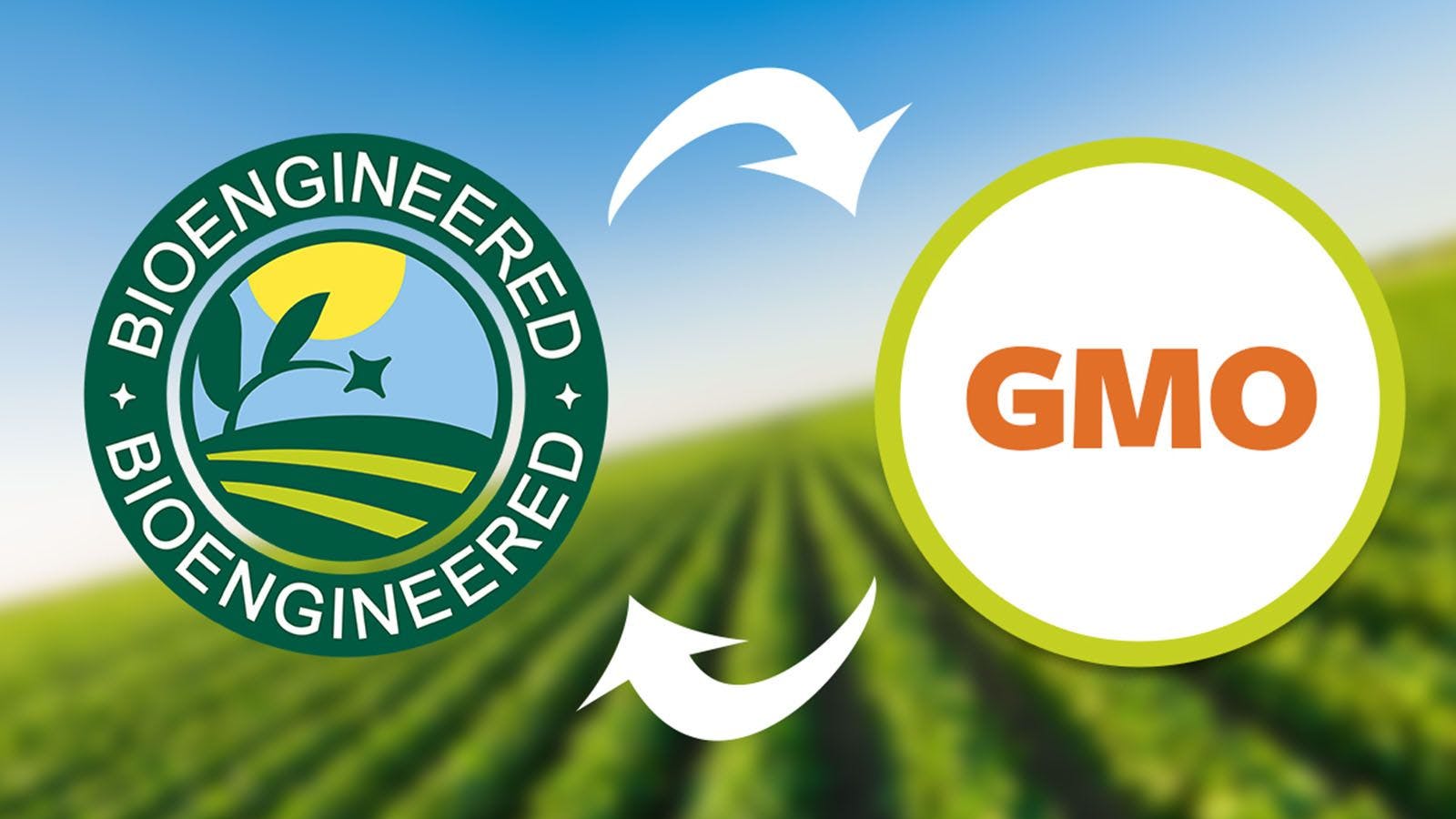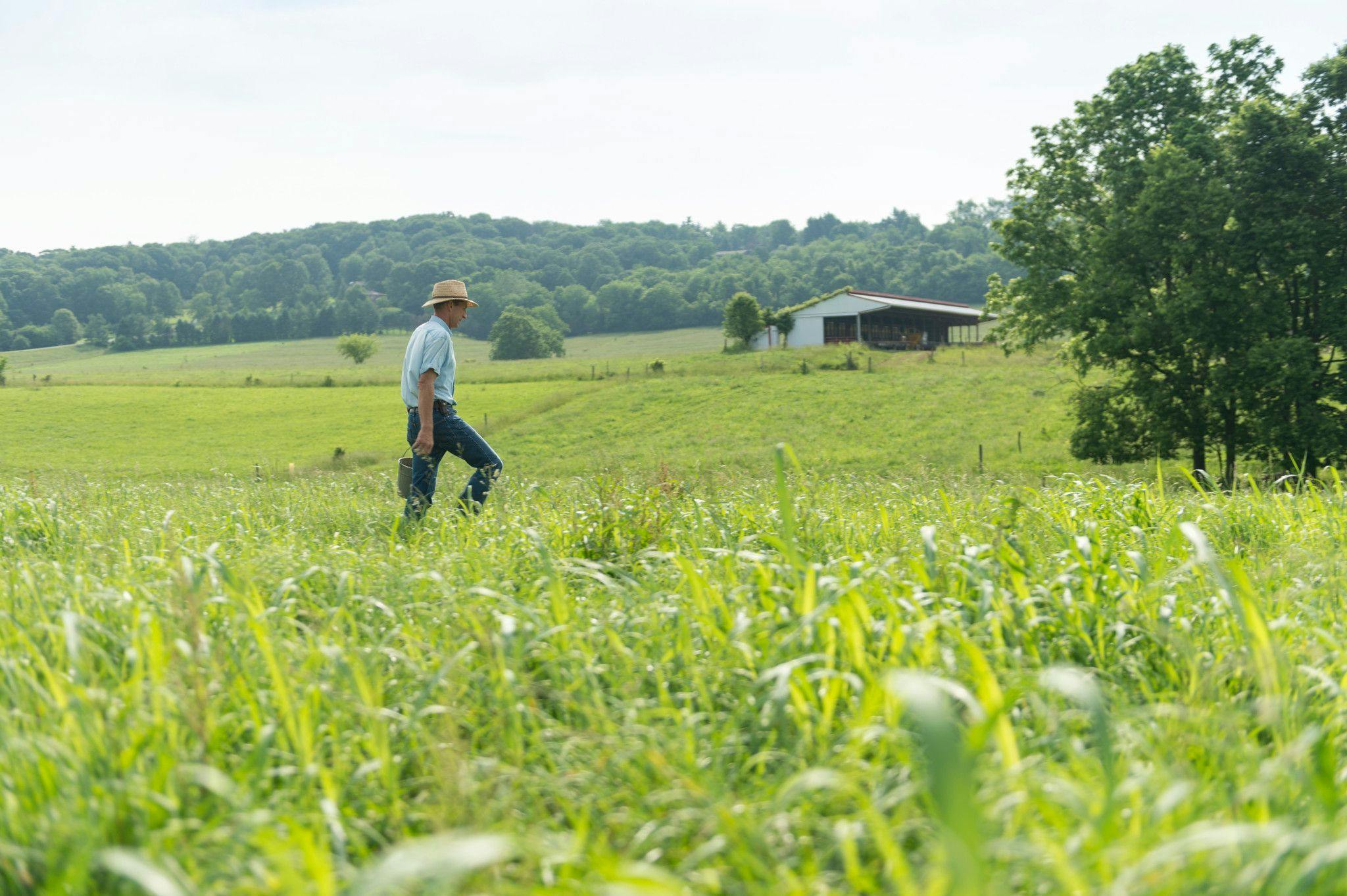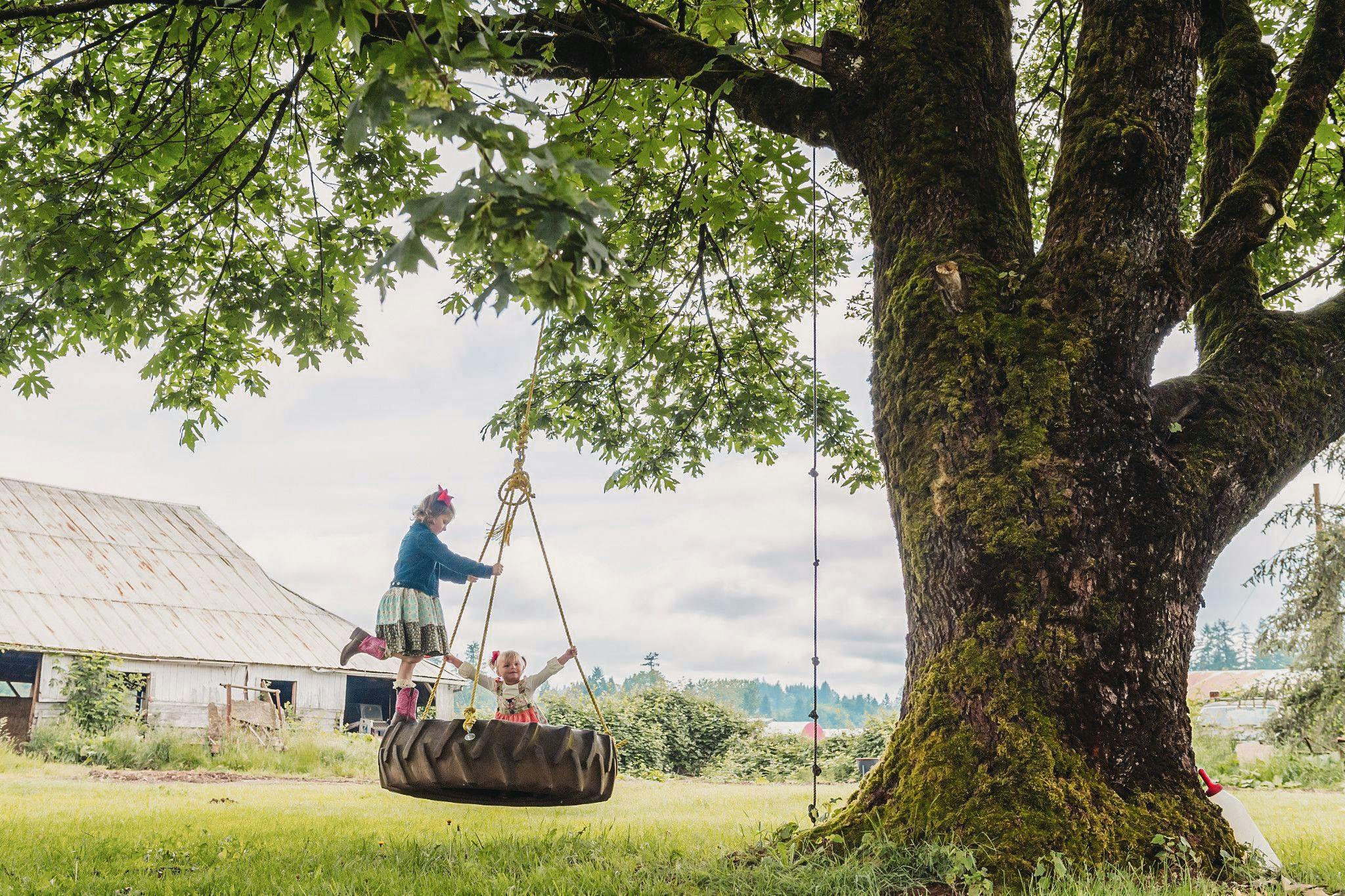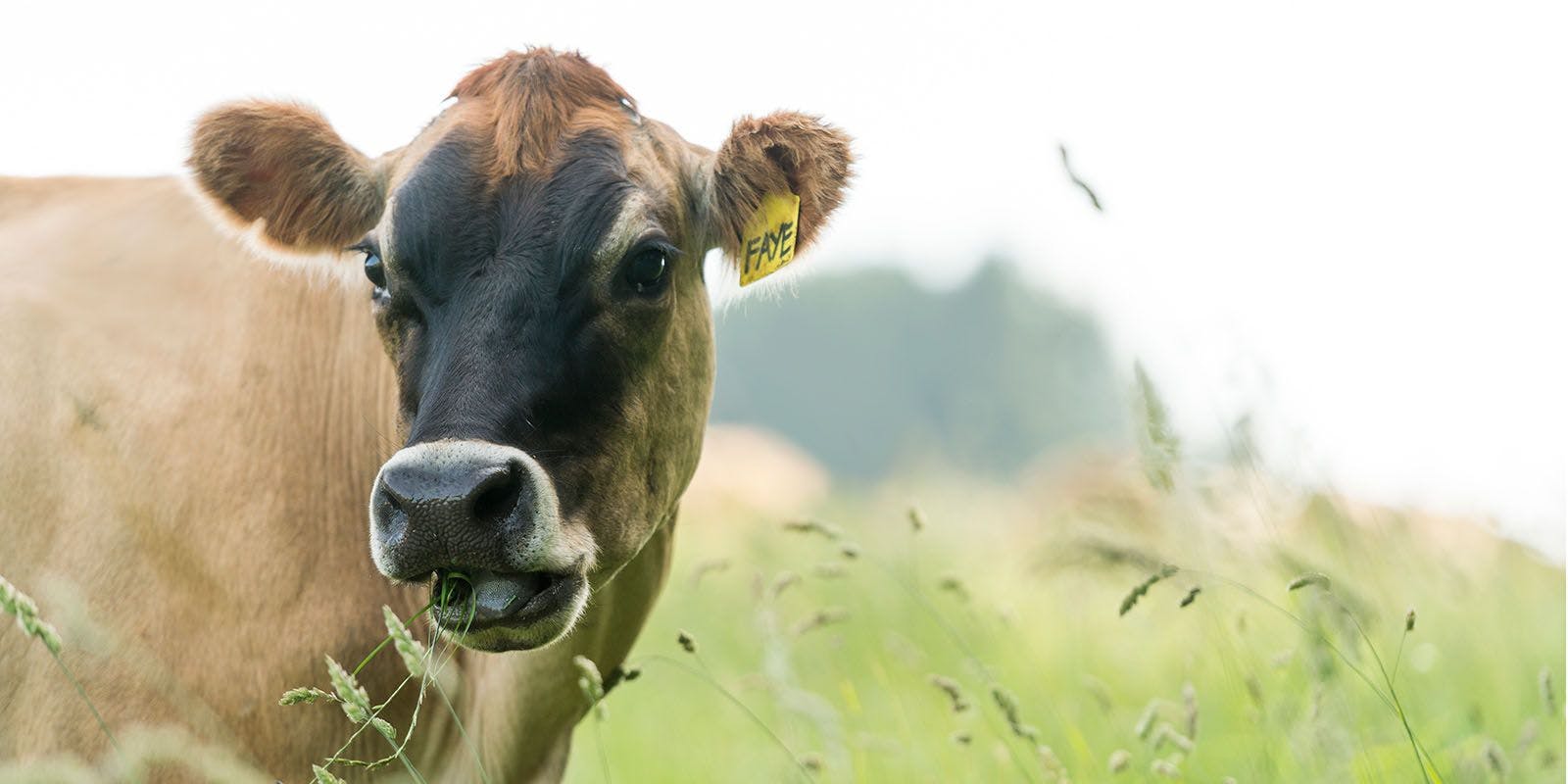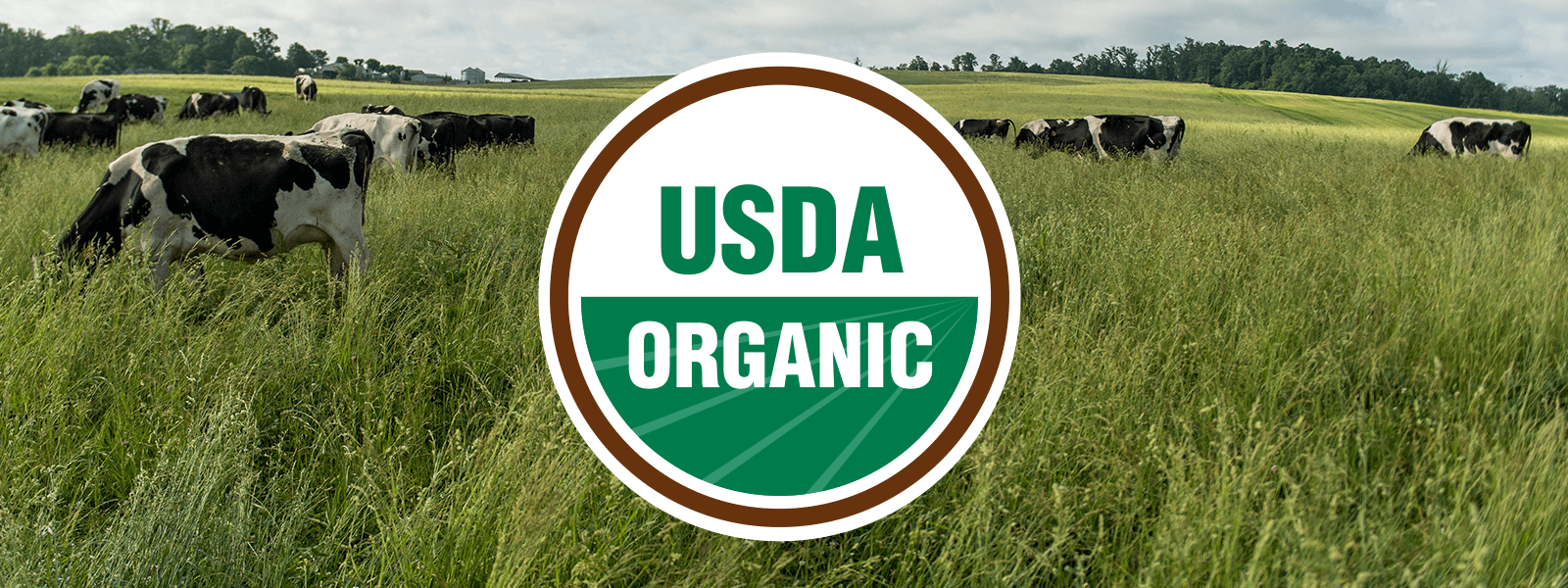
Food
Raising the Bar on USDA Certified Organic Food
Those reliable U.S. Department of Agriculture Organic standards require a herculean effort by farmers, processors and inspectors to ensure that organic food is created without antibiotics, artificial hormones, synthetic pesticides and herbicides, or GMOs. It’s a lot of work.
But did you know the more than 1,600 family farms in our cooperative choose to go above and beyond organic standards in many ways?
As far back as 1988, we were on a mission to change the way people think about food. We set high organic standards for ourselves — standards that eventually served as a framework for the USDA’s organic rules. We started with organic vegetables and pooled our crops to sell in local communities. Before a year had passed, we started selling organic dairy. And people could tell the difference. Our local communities began choosing our organic milk over other options, and we realized that we were certainly right about one thing: People wanted quality food.
More than 30 years later, Organic Valley continues to raise the bar on the definition of organic. Here are just a few of the always-higher standards we have in place so that you can feel confident in Organic Valley and excited about foods in your cart.

Kelly Placke spends time with cows on her organic farm in Wisconsin.
We Never Use …
USDA Organic standards require that organic food is produced without antibiotics, artificial hormones, synthetic pesticides and herbicides, or GMOs. But we push those standards further than you might expect.
No Artificial Ingredients
It would certainly be easier to use artificial ingredients or flavor enhancers. For instance, Organic Valley once made a hazelnut half-and-half that had dedicated fans across the country. However, when our organic hazelnut supply was no more, we discontinued the product because there was no other organic hazelnut option for us to use in our creamer. We frequently make choices like this to ensure that when you pick up an Organic Valley product, it contains the quality ingredients you expect from us.
No Carrageenan
We once used this naturally sourced organic ingredient derived from red seaweed to create a pleasing texture by keeping ingredients like cocoa from settling to the bottom of our products. It was allowed in organic for many years, but after research emerged about carrageenan, the National Organic Standards Board wanted to phase it out. We heard our fans loud and clear — no more carrageenan, ASAP.
Our product development teams raised the bar and removed carrageenan from Organic Valley products that were using it. Why? Because we listen to you.
In 2018, the USDA ruled carrageenan could be used despite the NOSB's recommendation to ban it. We did not start using it again and have no intention to.
No Oxytocin
Oxytocin is a hormone naturally released by all pregnant mammals (including humans) during labor and nursing. Synthetic oxytocin is sometimes used when a cow is having trouble with labor or letting down her milk after birth. Although organic standards do allow it in limited uses, Organic Valley does not allow the use of oxytocin in any capacity on farms in our cooperative.
Raising the Bar(n) on the Farm
Pasture
You’ve seen the pictures and videos of cows on Organic Valley farms enjoying fresh green pasture. It’s pretty easy to get great photos when our cows are outside 50% more often than the USDA Certified Organic requirement. No one requires conventional farms to give cows outdoor time.
Smaller Herds
Smaller cow herds mean more personal care. Our average herd size is less than 80 cows, which is 3.5 times smaller than the national average dairy herd size! That means each cow and calf gets more TLC from the farmer who cares for them every day. This goes for our chicken, hog and beef cattle farmers too.
Better Food for Our Chickens
Chickens in our cooperative get organic feed and access to grassy pastures, but then we go a few steps above and beyond that. Our farmers carefully manage the ratios of what is in the flock’s feed compared to the nutrition they receive on pasture, to improve overall egg nutrition and quality. This gives egg-lovers the dark yellow egg yolks they’re looking for. All of these efforts go above and beyond the organic definition.
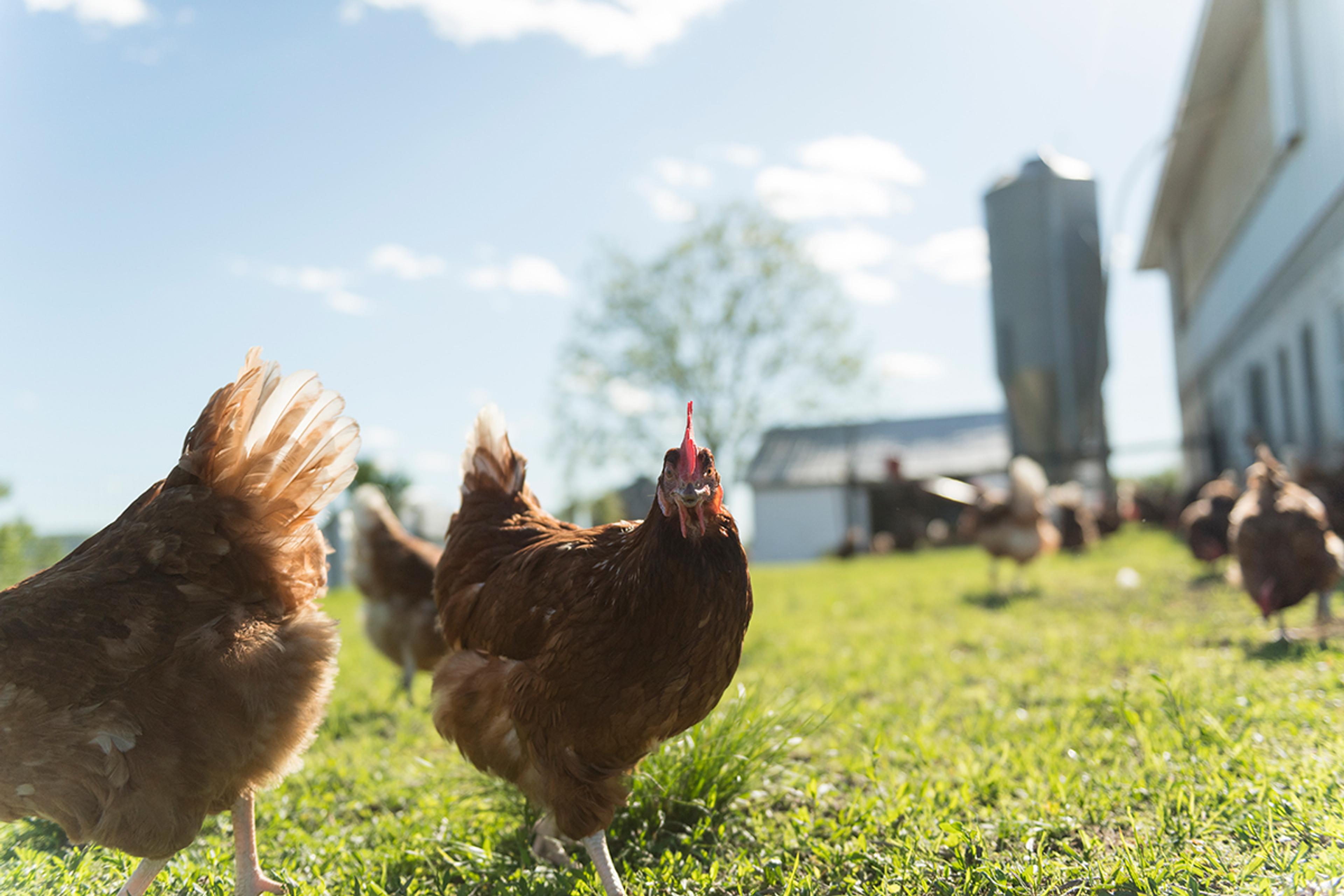
Chickens live it up at the Glick's small organic family farm in Pennsylvania.
More Outdoor Access for Poultry
The farmers of our cooperative also give their chickens and turkeys more space outdoors and plenty of time to enjoy it (weather permitting, of course). We advocated right alongside you to get the Organic Livestock and Poultry Practices Rule integrated into USDA Organic certification, but bureaucracy stopped that from happening. We decided to go ahead and adopt the recommended policies on our farms because it was the right thing to do for our animals, and it’s what you expected from us.
We Pay Our Farmers First
Other companies pay business expenses before paying their farmers. However, Organic Valley’s founders were actually real farmers, and they knew that wasn’t right. Our entire cooperative is built on the foundation of establishing a stable pay price for farmers. When we have a good year, farmers get even more for their hard work through profit-sharing.
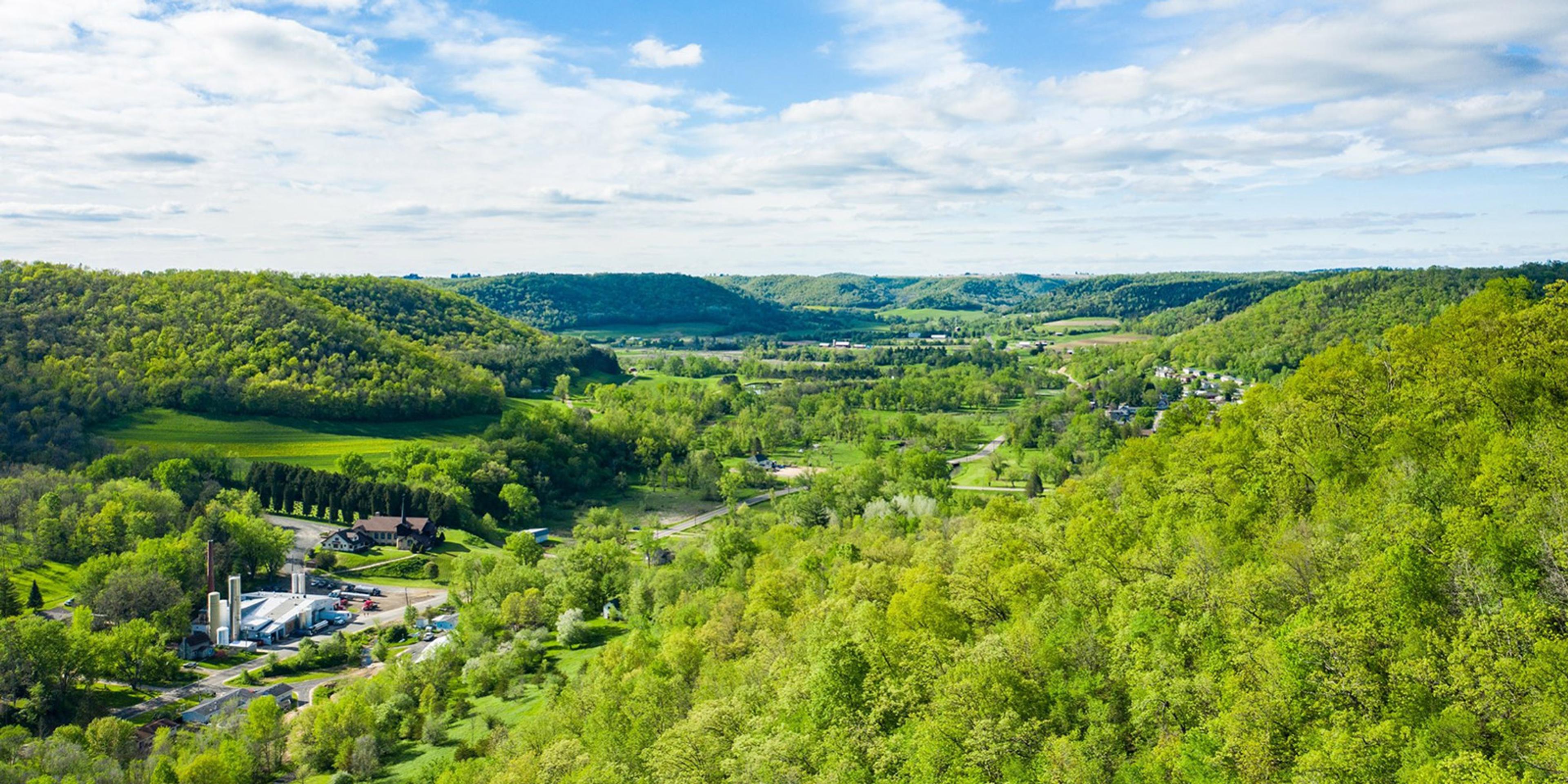
An aerial view of our Chaseburg Creamery nestled in its valley in Southwestern Wisconsin. Photo by Andrew Hohlfeld.
Raising the Bar in the Creamery
57 Quality Checks
Yes, you heard that right: 57! Some people might say that’s just too many, but we say putting healthy, safe, certified organic milk, eggs and produce on shelves is worth the extra time. We test during every step of the process, from the milk trucks picking up on the farm, to unloading at the processing plant, to pasteurizing the milk and churning vats of fresh butter, to the packages of milk zipping out our warehouse doors to your favorite stores. It’s the same for every one of our products.
Halal and Kosher Certification
We make food so that everyone can enjoy it. That’s why many of our products are both halal and kosher certified. It’s important to us that anyone who wants to enjoy organic food can feel good about choosing Organic Valley.
Continually Improving our Processing
We never stop iterating and improving how we make our products. We invest in infrastructure when it improves quality and increases production. We built a facility for cheese packaging and ghee production, and we also purchased a creamery in McMinnville, Oregon. We keep improving our processing because it’s the right thing to do.
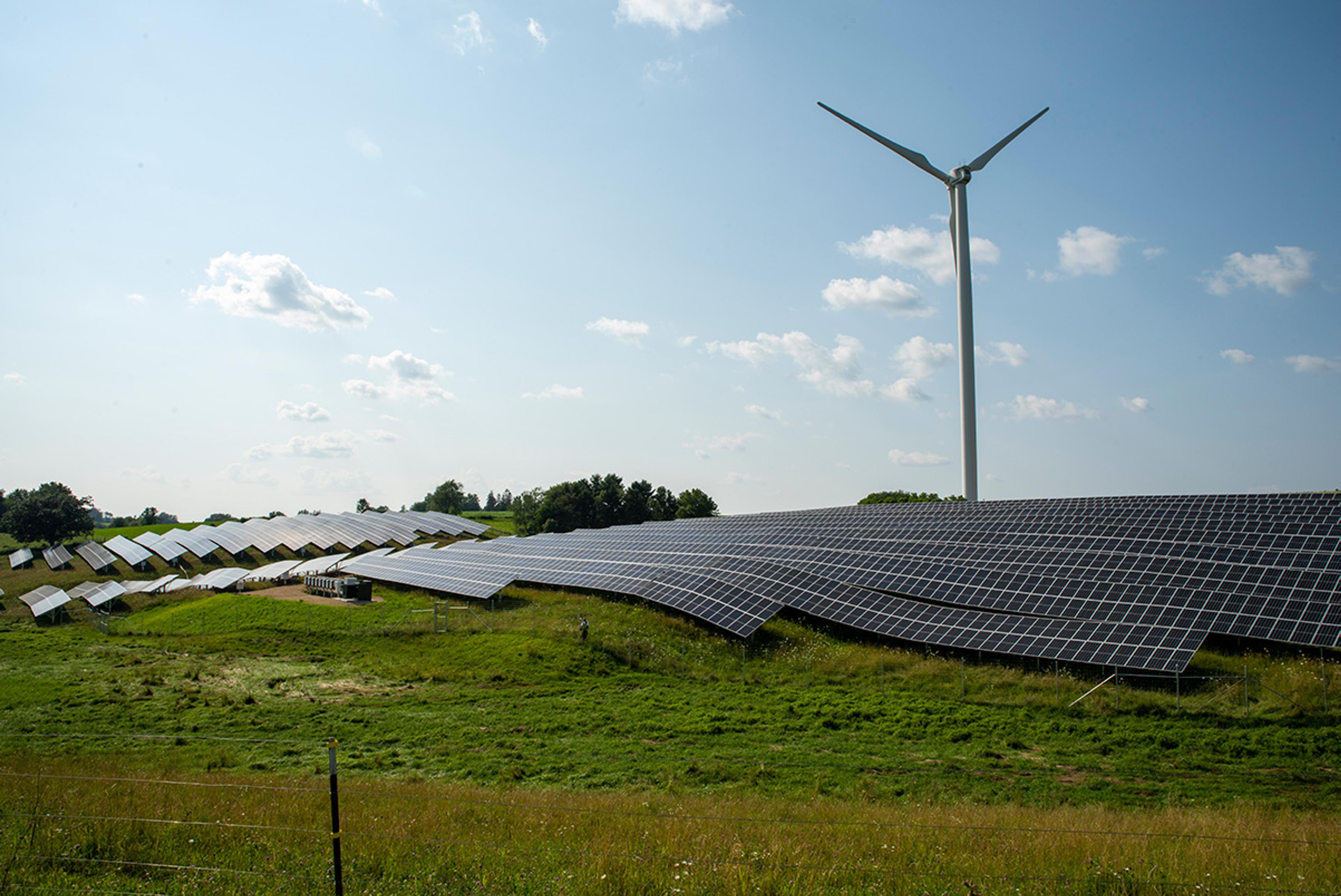
This solar field tucked underneath one of our wind turbines helped us reach our goal to be 100% renewable energy powered!
100% Renewable Energy
Our campus in Wisconsin includes two office buildings, two production facilities and a major warehouse, all of which are 100% renewably powered through a combination of wind, solar and geothermal energy. But we’re not done! As we grow, we’re continually thinking about how we can do more. While organic certification has no rules about renewable energy, we believe sustainability, organic food and renewable energy go hand-in-hand.
We were also excited to learn Organic Valley’s national dairy farm average greenhouse gas emissions are 24% lower than other conventional U.S. dairy averages!
Organic food and farming practices make it so you can feel good about what you put on your family’s table, and that’s why Organic Valley goes above and beyond the basic requirements. Are we overachievers? Maybe. But we’re OK with that. We raise the bar so that you can raise your glass, fork or spoon with confidence.
Want more?
Part business strategy, part passion, part social experiment — the people behind Organic Valley, the nation's largest organic dairy cooperative, will give you a new perspective on what it takes to put fresh, organic milk on your family's table. Watch our “Chain of Goodness” video to see how we’ve been bringing goodness to organic food lovers for 30-plus years.
Related Articles
- Tags:
- organic nutrition,
- organic & sustainable living,
- high quality products,
- making an impact













